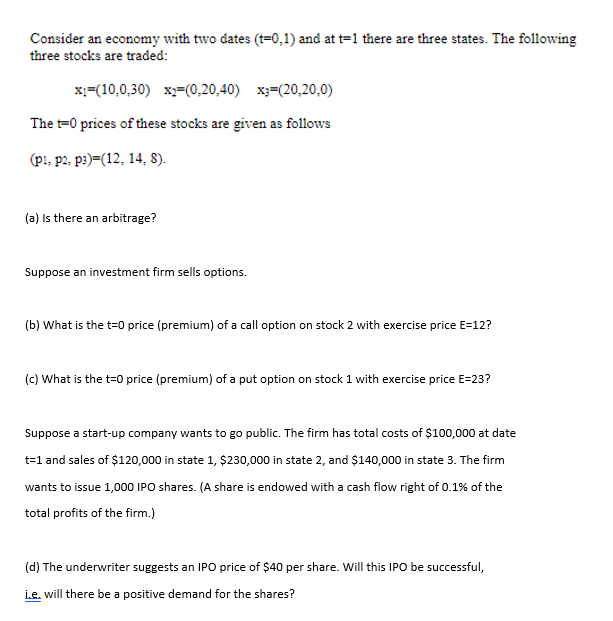a) Is there an arbitrage? Suppose an investment firm sells options. (b) What is the t=0 price (premium) of a call option on stock 2 with exercise price E=12? (c) What is the t=0 price (premium) of a put option on stock 1 with exercise price E=23? Suppose a start-up company wants to go public. The firm has total costs of $100,000 at date t=1 and sales of $120,000 in state 1, $230,000 in state 2, and $140,000 in state 3. The firm wants to issue 1,000 IPO shares. (A share is endowed with a cash flow right of 0.1% of the total profits of the firm
(a) Is there an arbitrage?
Suppose an investment firm sells options.
(b) What is the t=0
(c) What is the t=0 price (premium) of a put option on stock 1 with exercise price E=23?
Suppose a start-up company wants to go public. The firm has total costs of $100,000 at date
t=1 and sales of $120,000 in state 1, $230,000 in state 2, and $140,000 in state 3. The firm
wants to issue 1,000 IPO shares. (A share is endowed with a cash flow right of 0.1% of the
total profits of the firm.)
(d) The underwriter suggests an IPO price of $40 per share. Will this IPO be successful,
i.e. will there be a positive demand for the shares?

Trending now
This is a popular solution!
Step by step
Solved in 4 steps




